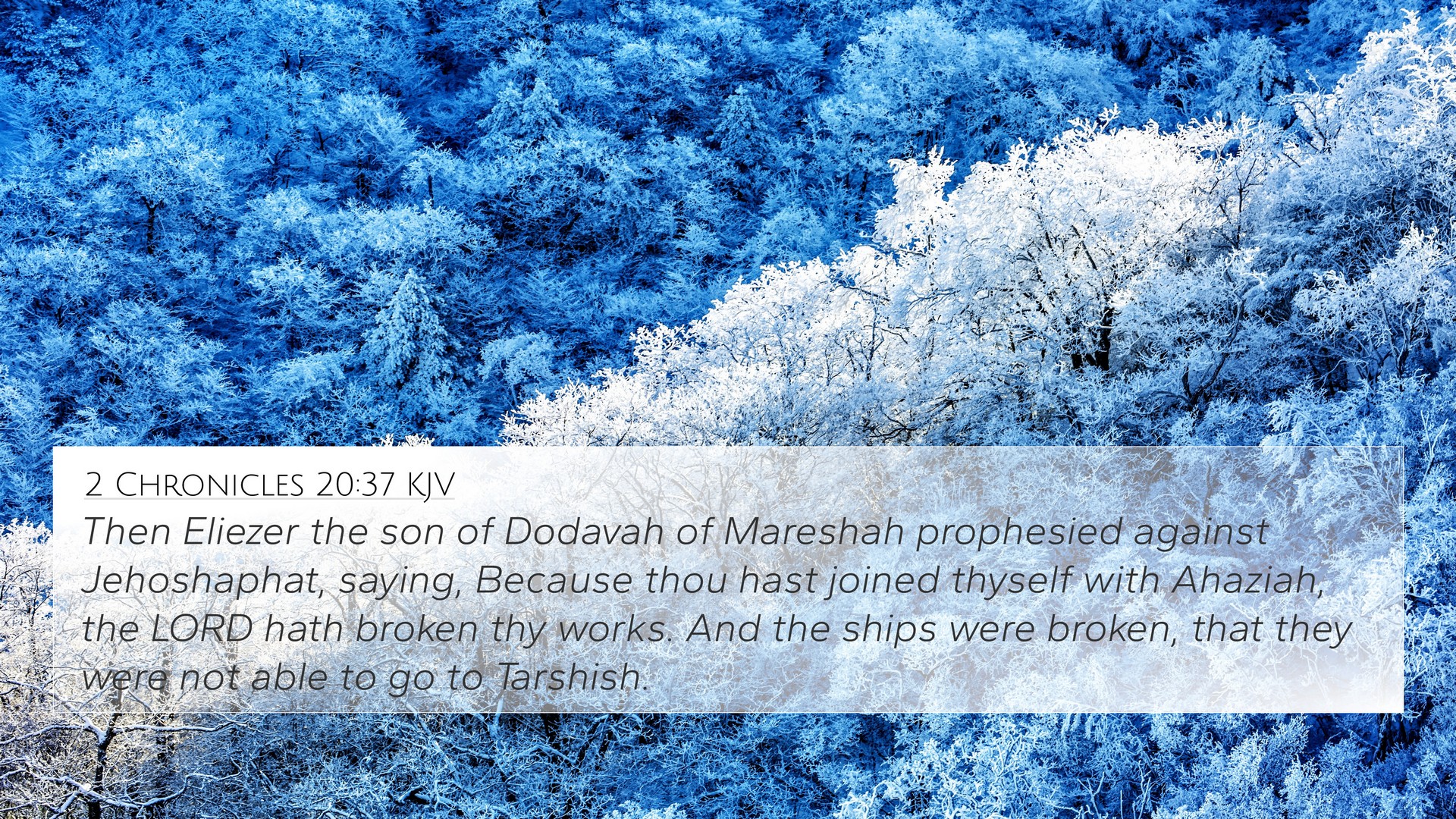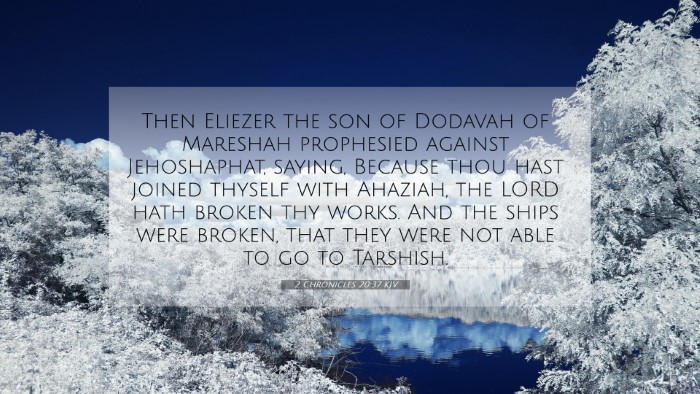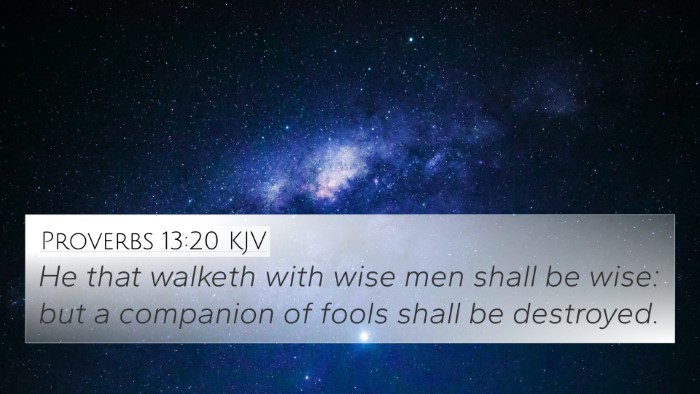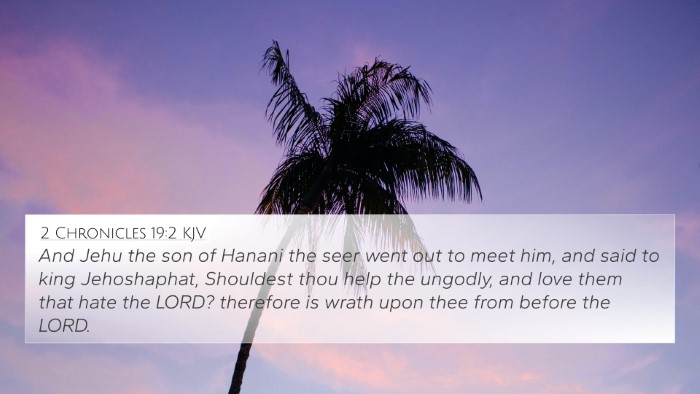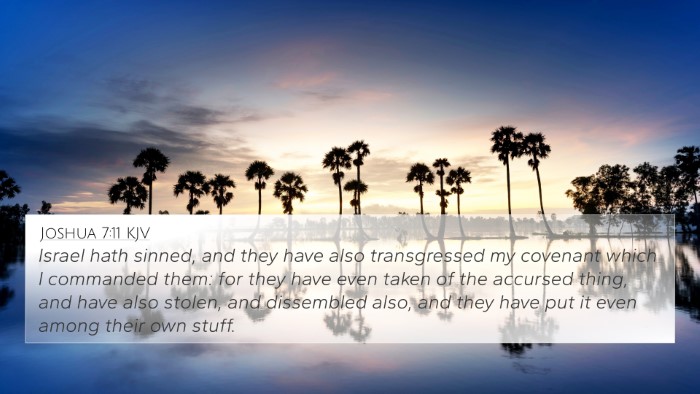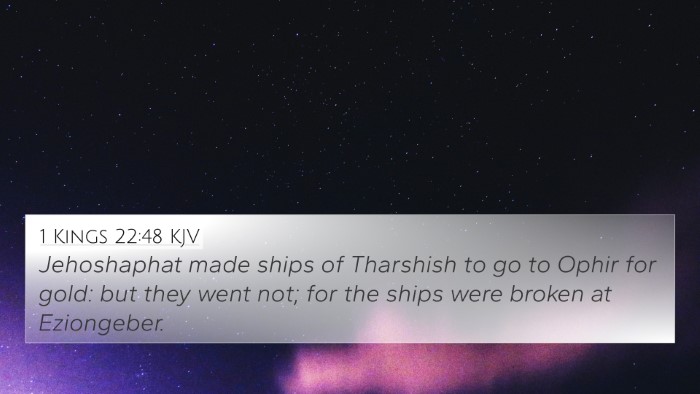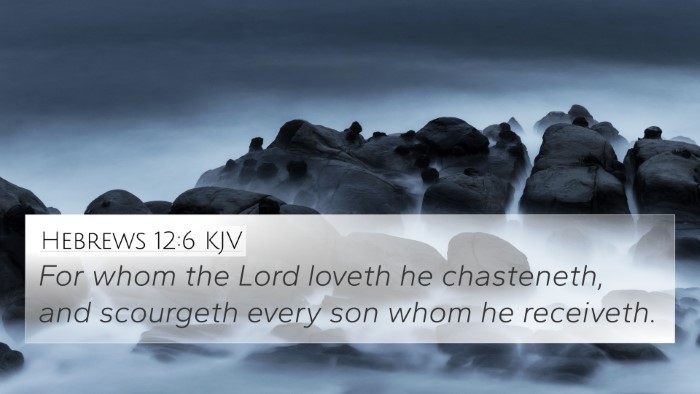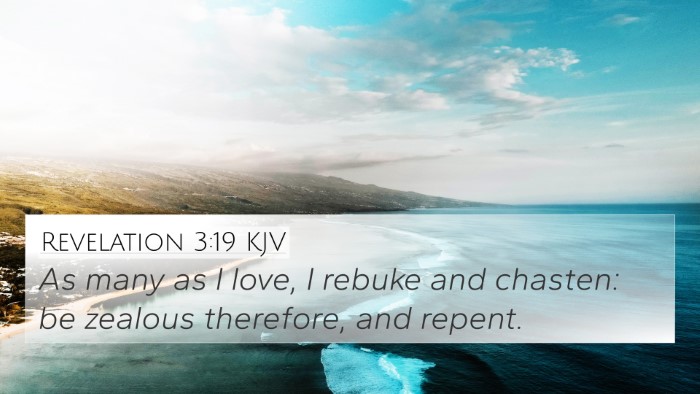Understanding 2 Chronicles 20:37
2 Chronicles 20:37 reads: "Then Eliezer the son of Dodavah of Mareshah prophesied against Jehoshaphat, saying, Because thou hast joined thyself with Ahaziah, the Lord hath broken thy works. And the ships were broken, that they were not able to go to Tarshish."
This verse serves as both a warning and a reflection on the consequences of alliances that contradict God’s instruction. The commentary by Matthew Henry emphasizes the folly of forming alliances with ungodly characters, symbolized here by King Ahaziah of Israel, who was known for his wickedness.
Key Themes and Insights
-
Divine Judgment:
The prophecy delivered by Eliezer indicates God’s disapproval of Jehoshaphat's alliance with Ahaziah, showcasing that compounding sinful actions leads to divine intervention. As per Adam Clarke, God often uses prophets to convey how unwise partnerships lead to catastrophic failures.
-
Consequences of Compromise:
Albert Barnes reflects on how Jehoshaphat's efforts to form connections with wicked allies not only displeased God but also jeopardized national security and stability. The broken ships serve as a metaphor for lost endeavors due to making unholy pacts.
-
The Role of Prophets:
The presence of Eliezer highlights the significance of prophetic voices in guiding leaders. In the context of biblical history, prophets often played the critical role of reminding rulers of their covenant obligations — a theme echoed in many parts of scripture.
-
Symbolism of Ships:
Ships often symbolize commerce and the means to pursue ambitions. The failure of Jehoshaphat's ships illustrates how divine disfavor can thwart human efforts, symbolizing God’s sovereignty over our plans and alliances.
-
Restoration through Repentance:
Although this verse outlines judgment, it also opens discussions of repentance and restoration, emphasizing that turning back to God always holds the promise of redemption, common throughout biblical narratives.
Cross-References
To gain a deeper understanding of 2 Chronicles 20:37, we can look at several cross-references that align with its themes of divine judgment for ungodly alliances and the prophetic role:
- Exodus 34:12-16: Warning against alliances with other nations.
- 2 Chronicles 18:1-3: Jehoshaphat’s previous alliance with Ahab.
- Proverbs 13:20: The importance of wise companionship.
- Jeremiah 29:7: Instructions to seek the welfare of the city and not forge undesirable alliances.
- 1 Corinthians 15:33: “Bad company corrupts good character” as a New Testament principle.
- James 4:4: Friendship with the world makes one an enemy of God.
- Matthew 10:36: Prophecy filled with potential divisions based on loyalty to Christ.
Conclusion
In summary, 2 Chronicles 20:37 serves as a poignant reminder of the need for discernment in alliances and the potential repercussions when these alliances do not honor God’s will. The theme resonates through both the Old and New Testaments, inviting readers to reflect on the connections across the scriptures that highlight these lessons. The exploration of this verse not only aids in understanding inter-Biblical dialogue but helps us structure our lives around God's covenantal expectations.
Further Reflection
Exploring broader themes, the verse encourages believers to seek connections between Bible verses that reinforce fidelity to God over alliances with potentially harmful influences. Key insights can be drawn regarding how to navigate relationships that both honor God and uplift one's commitments. The integration of comparative Bible verse analysis through well-established cross-reference systems can facilitate a deeper study unmatched by traditional reading.
Engaging in these reflections will enrich one’s understanding of God's word and the interconnected themes that resonate throughout the Bible. Using tools for Bible cross-referencing can guide us on this journey of spiritual growth and understanding.
